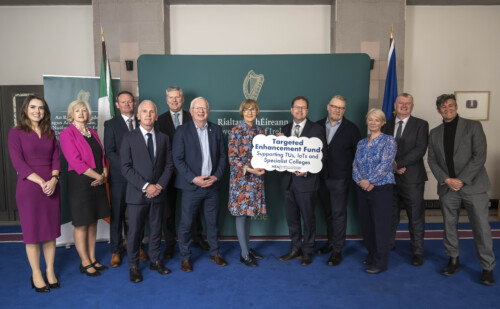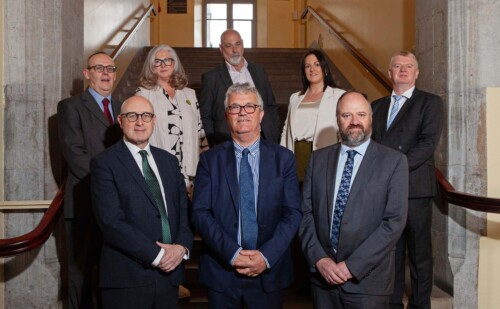
Higher Education – Key Facts and Figures 2022/23
By Maura O'Shea
Posted: 4 October, 2023
International students make up 13.7% of the student population. This is up from 12.4% in 2021/22.
The data, released by the Higher Education Authority (HEA), shows that the number of Internationally domiciled students has increased from 31,720 in 2021/22 to 35,140 in 2022/23.
These annual statistics, compiled by the HEA, provide an overview of both the student and graduate population over the past 7 years. These look at the numbers of students enrolled in a particular year, what students are studying, where students are from, their route to higher education, the number of graduates in a year, and the qualifications that graduates achieve.
New entrants to higher education have increased by almost 1%. Over 1,000 additional students registered for higher education courses using the leaving certificate as their entry basis in 2022/2023 compared to the previous year.
In 2022/23, there are a total of 256,785 students for all modes of study. This is down 1.6% from 261,010 in 2021/22. Full-time enrolments dropped from 200,035 in 2021/22 to 198,970 in 2022/23 however full-Time undergraduate enrolments remained stable.
Enrolments in PhDs increased by 5% over the year and by 26% since 2016. Enrolments in Taught Masters declined by 4.9% from 29,990 in 2021/22 to 28,525 in 2022/23, However, this follows a 4.9% increase between 2020/21 and 2021/22 while the country was in the depths of the pandemic.
In addition, the number of mature new entrants has continued to drop, with a decrease of almost 600 mature new entrants to higher education in 2022/23 compared to the previous year.
Almost two-thirds of enrolled students were studying Honours Degrees (60.3%), and 11.1% were studying a Taught Masters.
The gender gap observed in previous years remains, with the gender gap continuing to widen; females account for 54.5% of the overall student population, up from 51.9% in 2016/17.
The most popular subject group studied is Business, Administration and Law (20.3%), followed by Health & Welfare (17.0%).
The US remains the most common country of origin for Internationally domiciled students (14.5%). This is followed by India (13.5%), and China (11.3%).
In the class of 2022, there were 85,645 graduates (down 3.4% from 88,640 in the class of 2021).
More than 2 in 5 graduated with an Honours Degree (40.3%). Almost 1 in 5 graduated with a Taught Masters (22.6%).
Almost 1 in 4 Undergraduate Honours Degree graduates graduated with a First-Class degree (24.4%).
CEO of the HEA, Dr Alan Wall welcomed the publication of this new data.
“The data is showing us that following an uncertain period during the pandemic the system is starting to show signs of returning to pre pandemic levels. International students are returning to our shores with the latest data showing a record high of more than 35,000 International students in Ireland in 2022/23.”
Dr. Vivienne Patterson Head of Skills, Engagement and Statistics at the HEA also noted that
“A full employment economy may be resulting in mature entrants choosing to remain in the workplace rather than return to education. However, overall the number of undergraduate students registering each year is continuing to increase with Level 8 honours bachelor’s degrees being the most popular route across the sector.”
Link to full report here


